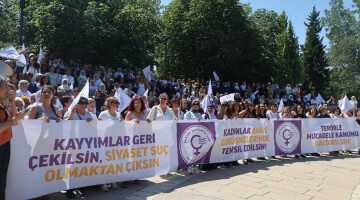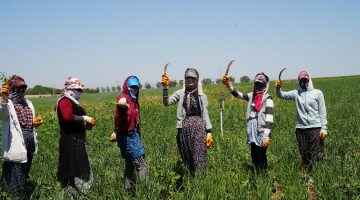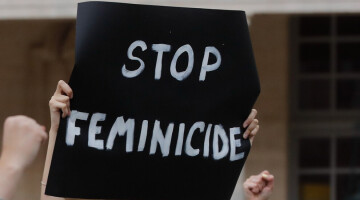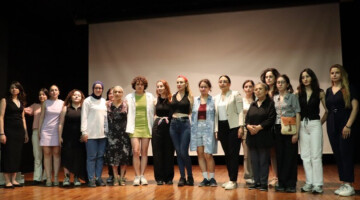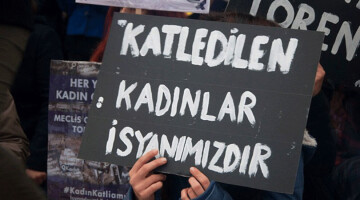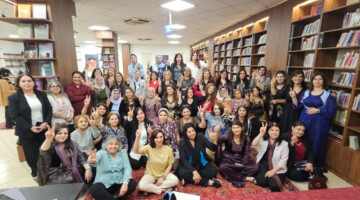HDP Hakkari deputy and DTK co-chair, Leyla Güven, is on hunger strike since 8 November in Amed prison.
She went on hunger strike to demand an end to the isolation regime imposed on Kurdish People's Leader Abdullah Öcalan.
One month fasting and it is taking its toll: lawyers said Güven’s health is worsening and she may be entering a critical stage any minute now.
Layla Güven’s action has inspired thousands all over Kurdistan and Turkey but also Europe and as far as Toronto. Solidarity hunger strikes have been launched in many prisons and cities.
In Urfa, Van, Mardin, Mersin, Adana and in many Turkish cities citizens are protesting. The same happens in Rojava and Europe, while PKK and PAJK prisoners also began hunger strikes on 27 November.
Leyla Güven’s daughter, Sabiha Temizkan, has talked to ANF about the situation of her mother who is in Diyarbakır E-Type Prison.
Leyla Güven determined to continue her action
Sabiha Temizkan said that she met her mother on the 26th day of her action.
“I saw my mother at the open visit I had with her on the 26th day of the hunger strike. - said Temizkan - She was in general good health, although she has clearly lost many kilos and was approaching the critical phase.
She was in good spirit and said that she is determined to continue the action. She said that PKK leader Abdullah Öcalan has an important role in ensuring social peace in Turkey and added that the isolation regime imposed on him is in fact imposed on the whole people.”
Therefore, added Temizkan, “this action is to be considered as part of the efforts to secure peace. In announcing the decision to go on hunger strike, she apologised to the Peace Mothers and to our people for not bringing peace. And added that with the lifting of the isolation regime imposed on Öcalan, the hopes for peace will re-flourish. She put her life in this action with determination to have her demand answered in a positive way.”
‘Solidarity actions give strength to my mother’
Temizkan shared her thoughts on the solidarity actions and hunger strikes launched all over the country and abroad and in prisons.
“The demand to end the isolation imposed on Kurdish People’s Leader Öcalan is not my only my mother’s. It’s her as a member of the HDP and co-chair of the DTK.
My mother started this resistance by her own will and led the way. The actions which followed give her tremendous strength, and at every opportunity she thanks people for their support, she thanks the solidarity coming from the party and democratic sectors. She believes that the more these actions spread the bigger the chance to have the demand answered positively. I ask everyone who want peace to raise their voice and thus make the hunger-strike actions in prisons and my mother’s action to end before it enters the critical point.”
‘I can understand my mother’s action’
Temizkan emphasized that her mother is a very strong woman and even in the worst conditions she is always happy. "My mother always gives me strength. When I am next to her, I feel helpless against her will.”
Temizkan added: “Her body is fading away but she is very happy. It is an incredible motivation for her to know that people outside are following and supporting her with great hope. As a Kurdish woman and journalist, I have been following the suffering of the conflict for years. With the solution process, we all saw a hope for the suffering of the people to come to an end.”
Temizkan continued: “My mother is a woman who has devoted her life to peace. I can understand her concerns and the action she has undertaken putting her life at stake.
Social peace is the most urgent need of everyone living in this land. I am trying to do journalism in these times, when freedom of the press and freedom of expression are at their worst.
I think that there is no other way to say 'peace' louder at a time when everyone who raises the demand for peace, from academics to physicians, is put on trial.”









